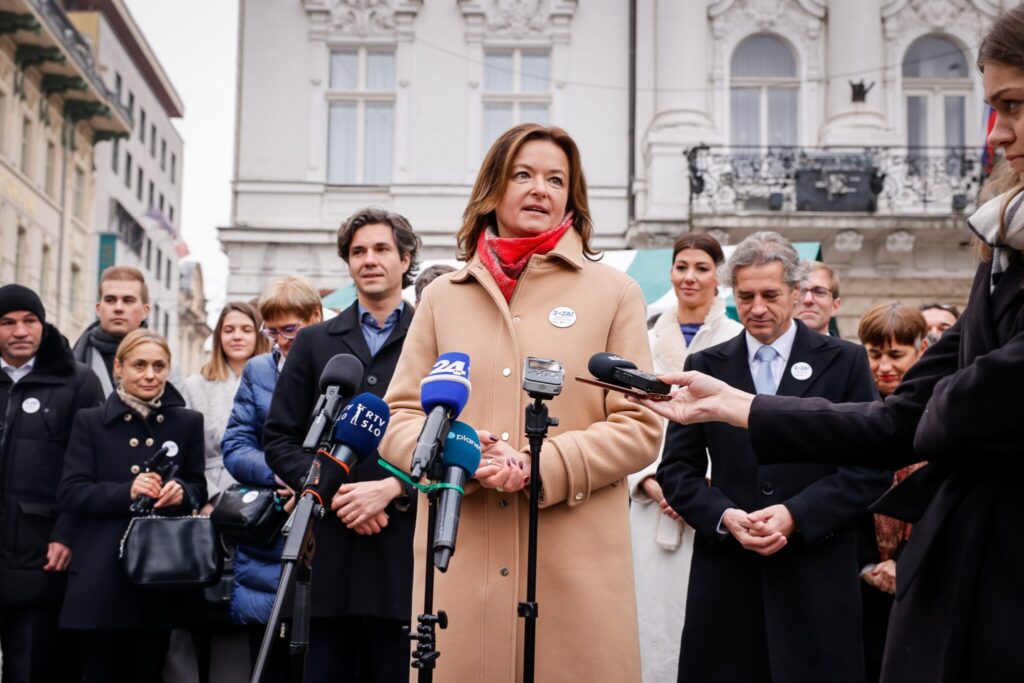A journalist of the Demokracija magazine (Democracy) spoke to Romana Tomc, Member of the European Parliament and Vice-President of the Slovenian Democratic Party (Slovenska demokratska stranka – SDS), about the events of the past year, both in the domestic and the European arena; on how the European Parliament views the developments in Slovenia; what marked the end of the year, and what the plans are for the year 2023. You can read the full interview in the latest issue of the Demokracija weekly.
As the year 2022 draws to a close, we can say it has been quite a turbulent year on the European and domestic political floor. What do you think marked it the most?
Unfortunately, this year has been marked by the war in Ukraine and its consequences. Nothing compares to the lives lost in Ukraine, and in the countries of the European Union, we are feeling the huge economic consequences, especially in the energy sector. Rising energy prices, threatened supply chains, and pressure when it comes to the prices of food. The European Union is trying to help Ukraine on the one hand and protect its own people on the other. For Slovenia, this has been a year of elections and referendums. The results of these decisions will have an impact on our quality of life. In fact, they are already impacting it, and will have an even bigger impact in the coming year.
How do you comment on the elections to the National Assembly six months after the liberalistic leadership of this government? Do you believe people are still dancing?
It is becoming increasingly clear that the dance floor is only reserved for a select few. The others are extras who cast their votes in the hope of getting a few crumbs themselves. They fall for false promises that, after the elections, everyone forgets about. The disappointment is great, yet many will not admit it, because to do so would be to admit their mistake. Elections in Slovenia are really something special. My colleagues in the European Parliament are having trouble understanding how a new face can win time and time again in Slovenia. This is a phenomenon that does not occur in developed democracies. New parties may get some attention from voters who are disillusioned with the way the country has been run, but it is difficult for them to get such a majority. It is even more incomprehensible that this keeps on repeating from one election to the next. It is clear that this would not be possible without the support of the media and the so-called civil society, which is actually all about pure political activism disguised as rights activism and similar empty platitudes.
And what do you think is the biggest fiasco of the current government we have seen so far?
Actually, we should ask ourselves what are the things that they have done so far that are not fiascos. The measures that have been taken so far to help the economy and the people are, to put it mildly, insufficient. If we compare them with the measures in the other countries of the European Union, we find that they are much too slow and not intensive enough. Entrepreneurs are also pointing this out. Communication is sub-par, and there are personnel purges going on. Tax legislation adopted under the previous, Janez Janša government, is being repealed, which means that they are effectively lowering people’s wages.
No other country is raising taxes in these times, unlike the Golob government. The behaviour of the highest representatives of the authorities in our country is completely out of step with what we expect from the country’s leadership. They are behaving like a power that no one can touch. And the media have their backs; they provide information to the people in a way that conceals the real situation, their mistakes are relativised, and every move is labelled a huge success. This may mask the real situation for a while, but sooner or later, the people will feel the consequences of the government’s ineffectiveness in their wallets and in the reduction of their living standards. On the other hand, some will draw enormous privileges from themselves from the situation.
Sara Kovač


